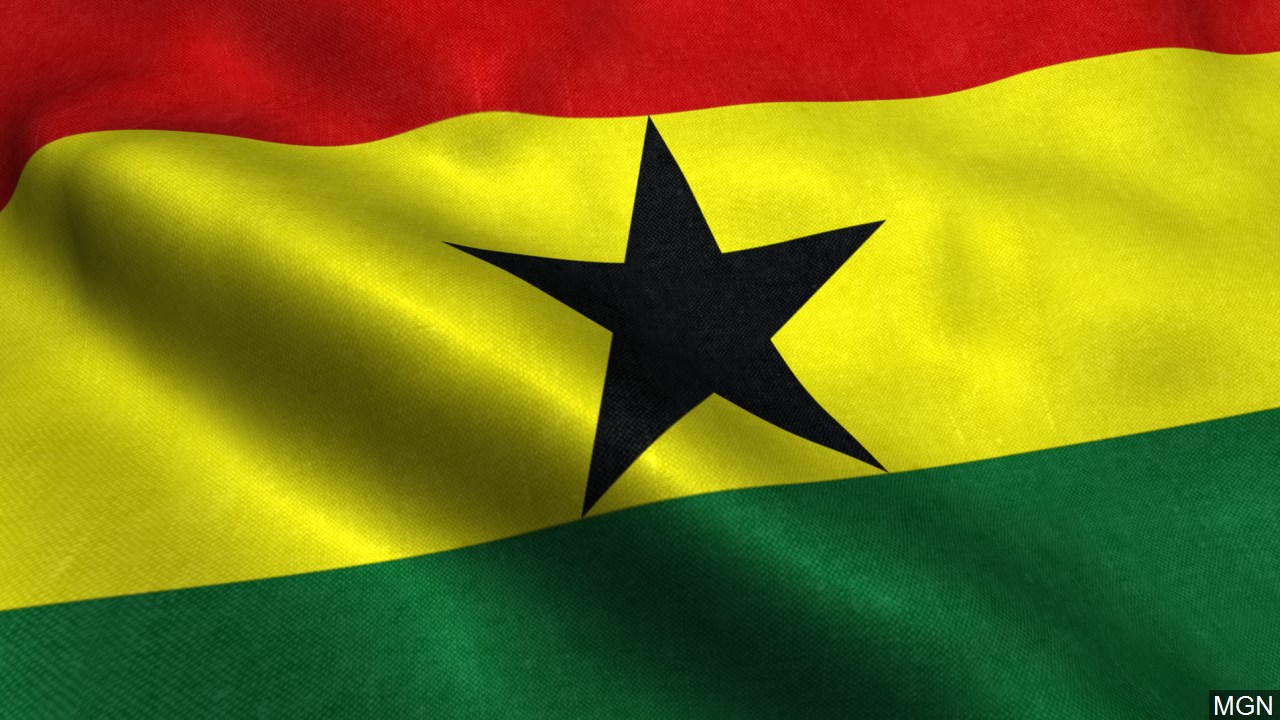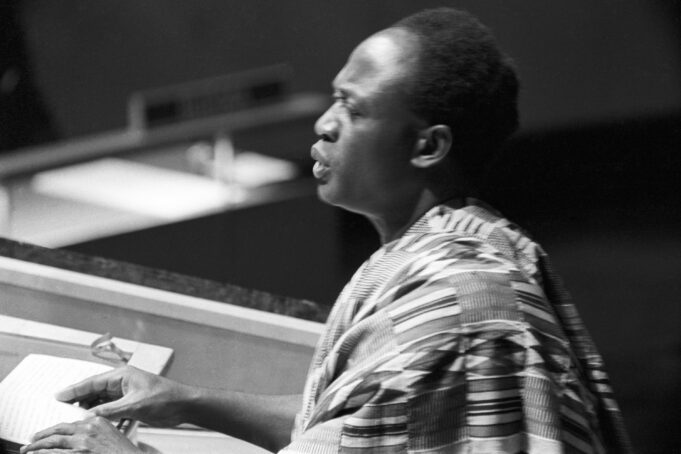The West African country of Ghana celebrated the anniversary of the Sept. 21 birth of its first prime minister and first president, Osagyefo Kwame Nkrumah. Celebrated annually and called “Memorial Day,” Ghana was the first sub-Saharan African country to achieve independence. Independence from its British colonizer occurred on March 6, 1957.

If March 6, 1957 is a day to be remembered, February 24, 1966 is regarded by many Africans, particularly Ghanaians, as one the continent’s most dreadful days. “On that fateful day the first Republic of Ghana was overthrown in a military coup d’état when the first President, Dr. Kwame Nkrumah, was on a peacemaking mission in Vietnam. Most Ghanaians and Africans continue to point accusing fingers at the United States for this unfortunate incident that brought not only the newly born nation to the brink of collapse but also brought the dream of a united Africa into jeopardy,” wrote Eric Quaidoo in his 2010 master’s thesis titled: “The United States and the overthrow of Kwame Nkrumah.”
For more substance on why the U.S. could have brought about the coup that abruptly ended his presidency, we can go to the U.S. Central Intelligence Agency (CIA) and its review of Mr. Nkrumah’s 1965 book, “Neo-colonialism: The Last Stage of Imperialism.”
In this historic book, one of the founding members of the Organization of African Unity, now called the African Union, sets forth the argument concerning the emerging phenomenon now known as “Neo-colonialism.” According to Nkrumah the general aim of neo-colonialism is economic domination at the satisfaction of a few. In the case of Africa, this manifests itself as imperialistic power without responsibility.
Neocolonialism in its cruelest form is the continuation of colonial polices under the guise of achieving freedom. African nations rely on their former imperial masters or colonial “mother country” for defense and internal security. Imperialist nations advance their economic neo-colonial aspirations by various aid schemes under the guise of improving living standards and conditions.

Meanwhile, these imperialist nations have little interest in developing the countries they aid or improving social aspects such as education. Destructive military aid, rather than helpful multilateral aid, is often given due to competing imperialistic objectives from Western powers, Nkrumah argued. The result is Africa’s mass amounts of natural resources are utilized to develop external Western nations such as the United States, Western European countries, rather than their own economies. As African countries export and provide cheap raw materials to help imperialist powers industrialize, they simultaneously create spheres of influence while supplying such powers with a market for their expensive finished goods.
A CIA memorandum dated November 8, 1965 and addressed to the “Deputy Director of Central Intelligence,” with the subject: “Book Review: Neo-Colonialism: The Last Stage of Imperialism by Kwame Nkrumah,” calls the book to the attention of the deputy director of the agency.
In the CIA review it claims that Nkrumah to support his thesis on “neo-colonialist control” is to a considerable extent exercised through economic or monetary means. Nkrumah devotes the major part of his book to a description of his views on neo-colonist economic control of the African continent and includes chapters on s subjects: Imperialist Finance, Monopoly Capitalism, Mining Interests, Diamond Groups, and Economic Pressures.
According to the CIA review, Nkrumah’s book also includes pointing out the USIA’s (United States Information Agency) close coordination with the CIA as well as “even armed forces intelligence centers.” The memorandum points out that Nkrumah says USIA is “a top intelligence arm of the U.S. imperialists.”

The memo quotes from page 250 of the Ghanaian leader’s book which states: “Among USIA’s alleged activities are the organization of networks of monitors for radio broadcasts and telephone conversations, recruiting informers from government offices, and collecting secret information. It allegedly supplies arms to anti-neutralist forces such as Tshombe and General Pak of Korea.” The review cites Nkrumah as stating: “It is by no means unusual for U.S. intelligence to set up its own business firms which are merely thinly disguised espionage centers.”
Whether or not the U.S was responsible for the coup is anyone’s guess. But in Dr. Eboe Hutchful’s 1987 book, “The IMF (International Monetary Fund) And Ghana: The Confidential Record,” the political scientist asks the question: “Why did the Ghana economy, after a much publicized application of IMF austerity after the coup, enter a period of deepening stagnation and underdevelopment from which, two decades later, it has yet to recover?” In other words, what prompted the U.S. and its IMF to institute neo-colonialist austerity policies, under a new military regime, unless that was the plan?
Mr. Hutchful’s book is a compilation of documents that contains negotiations with the military government, the IMF and World Bank, economic policy documents, debt negotiations, and more.
An interesting question raised in the book’s introduction is, “even though Nkrumah attracted more vitriolic or cerebral dislike from imperialism” was he as dangerous to Western imperialists as they suggest he was?
However, now imperialism tolerates and even defends positions to which it was previously hostile, Mr. Hutchful notes. “On the one hand the collective struggle of Third World peoples has wrested concessions from imperialism, forcing it to retreat from dogmatic positions; on the other, imperialism now has a much better understanding of the objective character and limitations of ‘radical’ petty-bourgeois regimes, and is thus able to exercise much more ‘flexibility’ in order to continue its extraction of surplus-value.”
Eric Quaidoo cites several documented U.S.-instigated coup plots against Nkrumah, including Koojo S. Lewis’ 1967 book “How America toppled Nkrumah.”
Lewis minces no words in exposing the motive and method of the CIA in Ghana and how, in close personal collaboration with the U.S. president, the CIA used the reactionary section of Ghana’s army to “neo-colonize” Ghana. According to Lewis, people who steered America’s foreign policy—the State Department and the U.S. president turned the CIA into an instrument of political and military interference into the internal affairs of other countries.
The CIA combined all the specific qualities necessary to impede the advent to power of genuinely national governments, to recruit leaders for their pro-American regimes with the support necessary to keep them in office. The CIA resorted to a wide variety of methods including: wiretapping, influencing election campaigns, blasting bridges to armed intervention. Acting both openly and secretly, the CIA became a major instrument for the implementation of Washington’s policy and one of the most active departments of the U.S. State Department.
Qaidoo also cites Secretary of State Dean Rusk’s reaction when he received news of the coup. According to an eye witness: “On the way Secretary Dean Rusk reacted when news of the coup was received make it explicit that the Secretary and for that matter the State Department had a vested interest in the long awaited coup d‘état.”
Career foreign service officer and U.S. Ambassador Robert P. Smith was quoted in Qaidoo’s book about the overthrow of Nkrumah. “I also remember, the morning of the coup, I got the call about 2 a.m. here at the house and went into the Department and immediately set up a little task force in Operation Center. Later in the same morning, about 8 or 8:30, Secretary Rusk wandered down the hall and came in and said―I‘ve seen the early reports, but I just want to hear it firsthand. What‘s going on in Ghana?” Qaidoo relays in the book.
“When I related how Nkrumah had landed in Peking and had been informed by his Chinese hosts of what had happened in Ghana, Dean Rusk broke into an earsplitting grin. I’ve never seen him so happy.”
Follow @JehronMuhammad on Twitter













